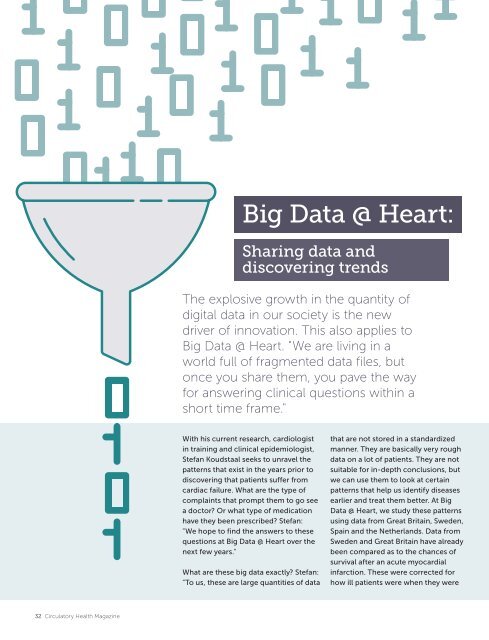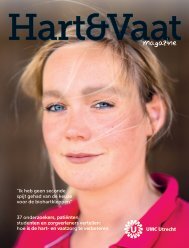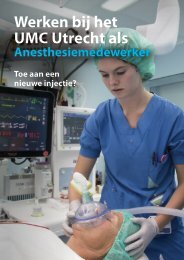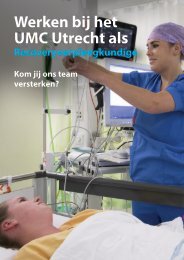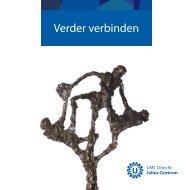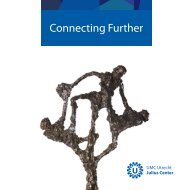Circulatory Health magazine
Create successful ePaper yourself
Turn your PDF publications into a flip-book with our unique Google optimized e-Paper software.
Big Data @ Heart:<br />
Sharing data and<br />
discovering trends<br />
The explosive growth in the quantity of<br />
digital data in our society is the new<br />
driver of innovation. This also applies to<br />
Big Data @ Heart. "We are living in a<br />
world full of fragmented data files, but<br />
once you share them, you pave the way<br />
for answering clinical questions within a<br />
short time frame."<br />
With his current research, cardiologist<br />
in training and clinical epidemiologist,<br />
Stefan Koudstaal seeks to unravel the<br />
patterns that exist in the years prior to<br />
discovering that patients suffer from<br />
cardiac failure. What are the type of<br />
complaints that prompt them to go see<br />
a doctor? Or what type of medication<br />
have they been prescribed? Stefan:<br />
"We hope to find the answers to these<br />
questions at Big Data @ Heart over the<br />
next few years."<br />
What are these big data exactly? Stefan:<br />
"To us, these are large quantities of data<br />
that are not stored in a standardized<br />
manner. They are basically very rough<br />
data on a lot of patients. They are not<br />
suitable for in-depth conclusions, but<br />
we can use them to look at certain<br />
patterns that help us identify diseases<br />
earlier and treat them better. At Big<br />
Data @ Heart, we study these patterns<br />
using data from Great Britain, Sweden,<br />
Spain and the Netherlands. Data from<br />
Sweden and Great Britain have already<br />
been compared as to the chances of<br />
survival after an acute myocardial<br />
infarction. These were corrected for<br />
how ill patients were when they were<br />
32 <strong>Circulatory</strong> <strong>Health</strong> Magazine


